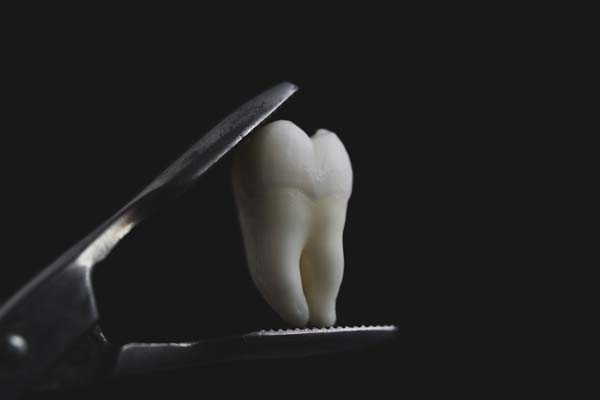How Long Does it Take to Recover from a Tooth Extraction?
If you are in need of a , you may be wondering how long it will take to heal from this procedure. Let's discuss the various reasons for having a tooth extracted, the extraction process itself, and the healing process.
Reasons you may need a tooth removed
There are a variety of reasons why someone would need a tooth extraction. A tooth may have a large cavity that has caused the tooth to be beyond repair. A tooth may be so severely broken that it cannot be fixed. Severe gum disease may have weakened the bone that supports the tooth. A tooth may need to come out, but for some reason, it won't fall out on its own. A baby tooth may be blocking an adult tooth from coming in.
Your dentist may need to create more space in your mouth to administer an orthodontic treatment or put in a denture or dental implant. You may have an impacted tooth that has only partially erupted (not completely on the surface). You may still have your wisdom teeth and had one or more of them become infected. You may even need a tooth extraction simply because the tooth is causing you severe pain.
Recovery time for tooth removal
The recovery time for a tooth extraction varies from patient to patient based on the size and location of the tooth, your overall dental health, and how well you follow the aftercare instructions your dentist provides.
The recovery time for a simple extraction is usually very short. A simple extraction is a tooth extraction involving a tooth that has fully surfaced in the mouth, and no surgical procedure is needed. It is recommended that you take at least two or three days to rest after a simple extraction. Doing this will allow a blood clot to form at the extraction site, which promotes healing and helps prevent infection. After those first 48-72 hours, patients can usually resume normal activity. It will usually take the soft tissue three to four weeks to heal completely.
Surgical tooth removal
Surgical tooth extraction is a more complicated procedure than a simple extraction, and as such, it comes with a somewhat more complex healing process. A surgical extraction is necessary when a tooth is still inside the gums and requires removing part of the jawbone. As with a simple extraction, it is recommended that you take two or three days to rest and allow a clot to form, but you need to wait about a week before doing any strenuous activities.
How much time a patient needs to take off of work will depend on the physical strenuousness of their job. You should discuss this with your oral surgeon before the day of the procedure so you can make arrangements for how much time off you need.
Generally, tooth extraction may not be as bad as it sounds, thanks to modern dentistry and the available anesthesia.
Request an appointment here: https://www.schommerdental.com or call Schommer Dental at (563) 272-2331 for an appointment in our Davenport office.
Check out what others are saying about our dental services on Yelp: .
Recent Posts
Simple extraction and surgical extraction are the two kinds of tooth extraction. Read on to learn more about this type of dental procedure. Simple tooth extraction is done on a tooth above the gums and does not involve splitting the tooth into sections or using surgical procedures.If a tooth has suffered damage due to an…
When you are learning what to expect following tooth extractions, you first have to know about the specific types of extractions that are available for dental treatment. You will then learn what you can expect from the procedure, how you will feel following the procedure, and what steps are necessary to have the healthiest mouth…
Looking into your Emergency Dental Care options? Dental emergencies are often scary, and all too many people visit the emergency room as they are not prepared when it comes to how to treat this type of immediate concern. However, it is often best to visit the emergency dentist for emergency dental care as they can…
An emergency dentist can treat toothaches in a variety of ways if the pain becomes intolerable or the symptoms present a risk of worsening and causing other oral health issues if not treated promptly. However, for minor toothaches that can wait until a more convenient time to be scheduled, emergency dentists may provide useful tips…


